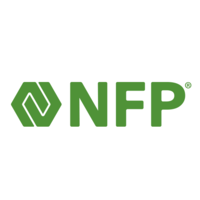Building For The Future: Putting Advanced Technologies To Work On The Job Site

Artificial intelligence, drones and other advanced technologies can benefit a construction project by streamlining administrative tasks, enhancing efficiency and productivity, and detecting errors and safety hazards.
These technologies can also be beneficial for insurance purposes, especially when it comes to safety. Mitigating or preventing on-site injuries can help decrease insurance claims.
Insurance broker NFP helps construction clients understand and manage their risks, pinpointing which technologies can best address them, NFP Senior Vice President Thomas Strong said.
“I'm excited for what we can leverage with technology and what innovations we can create to attain the best value for their insurance coverage and help them reach the highest level of productivity and safety for their job sites,” Strong said.
Strong walked Bisnow through how workers can leverage technological advancements to gain insight, manage risk and overcome challenges with implementation. He also discussed NFP’s collaboration with clients and insurance carriers.
Bisnow: How is the construction industry embracing digitization?
Strong: The industry is rapidly adopting digitization to combat labor shortages, improve efficiency and manage risks. Emerging technologies like artificial intelligence and Internet of Things, or IoT, systems allow job sites to be monitored in real time.
Advanced project management tools are shifting to help with proactive planning and reactive problem-solving. Going back 10 years, the problem was just getting the construction industry to start utilizing technology. Now it’s no longer about whether or not the firms are going to adopt technology, it's more how efficiently they can roll it out in their business.
What I'm hoping to see is that this AI will help bring advanced robotics to the job site. This can augment labor, help with productivity, help address some of the challenges we have around labor shortages, and create more sophisticated tools that work alongside workers to multiply their efforts. We are seeing some specialized robotics emerge in our field that are enabled by AI.
Bisnow: How can technology such as drones contribute to a construction project?
Strong: We've seen a lot of regulation changes in the past eight years or so where it started to kind of get more broadly accepted for general contractors to use drones closer to urban environments and near roadways.
Since drones fly in the air, they can give a bird’s-eye view of the job site and collect real-time information about the site. This enables crews to do assessments and use the data to reduce safety hazards. It also can save time by collecting information, especially on large civil projects.
Drones can be used to create three-dimensional models of topography on the job site. Lidar and other technologies can also be used with the drone to collect survey-grade data. There are systems that can ingest this data and then analyze it with AI to anticipate delays and help with decision-making.
Collecting data on a job and sharing it across teams helps with collaboration and helps people understand where bottlenecks are. This can alleviate some of the issues construction crews have with coordination on-site and create some efficiency while reducing costs and ensuring site safety.
Bisnow: What are some potential obstacles or considerations to implementing these technologies?
Strong: Companies have to buy this tech, and upfront costs are a huge item. Ultimately, they have to invest in deploying it in their business.
Cybersecurity and training are two other considerations. Whatever product you bring in, you're partnering with that system. It's going to be embedded into your business, and you want to make sure you've vetted that vendor. You have to understand their maturity level and think through the cybersecurity risks to make good decisions for these long-term partnerships.
Bisnow: How does NFP support contractors who are interested in bringing innovative solutions to the job site?
Strong: Technology has a huge impact on the risk profile of projects. As a broker, we work with our clients and identify the major risks on the project, we maintain relationships with leading technology providers, we develop contractual, operational or technology risk controls, and we go to market to find technology that will have a meaningful impact.
We apply that technology in the brokering process so the carriers recognize that we've mitigated that risk and therefore we can bring the premium down because the risk has been addressed.
In the U.S., certain carriers recognize that companies that use sophisticated project management systems manage their risk better and have less frequency and severity of claims. We're starting to see a sea change among the carriers recognizing this. It's a pretty exciting time for the insurer technology and construction technology realm to be converging.
This article was produced in collaboration between Studio B and NFP. Bisnow news staff was not involved in the production of this content.
Studio B is Bisnow’s in-house content and design studio. To learn more about how Studio B can help your team, reach out to studio@bisnow.com.

